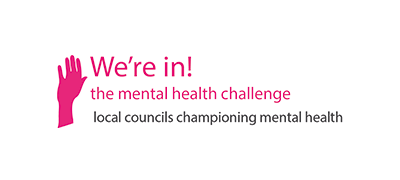29 July 2019
In April 2019, Andy Bell tweeted a link to a BBC article ‘Obesity and depression ‘hand-in-hand’ in children’, covering the work of researchers from the University of Liverpool and University College London. The study suggested that obesity and poor mental health in childhood may be closely linked. This was reflective of discussions I was having with colleagues at the time.
For a number of years, our local area had tried to offer children and young people ‘the right’ kind of weight management programme, reflective of NICE (2014) guidance; a multicomponent framework with motivational strategies, physical activity and eating behaviour – but we knew that something wasn’t working. Recruitment and retention rates to the intervention were persistently low and there were minimal reported changes to body mass index (BMI). BUT families who completed the 12 weeks, still reported that they really liked it – what was that all about?
When we spoke to young people in the programme, they told us that they valued the opportunity for social interaction with peers, comfortable ‘safe’ settings and personalised therapeutic support from a friendly person. Families spoke about specific people who were approachable, kind and warm and had been helpful, not because of ‘what’ they did, but ‘how’ they did it:
‘She was absolutely lovely. It was her that made it worthwhile for us really…’ – Parent
Participants commonly described their historic experiences of bullying, family trauma, poor mental health and low self-esteem and so, when we started to think about how we might like to offer services differently, we knew that we had to focus on family wellbeing rather than child weight/obesity explicitly or in isolation.
Through using an appreciative inquiry approach where we listened to more stories from families who were typically referred to explore some of the real barriers and motivators. Our conversations with families went on to reveal themes around parental childhood trauma, Adverse Childhood Experiences (ACE) and poor parental emotional wellbeing.
One parent we spoke to said:
‘I grew up in care, afraid to go to bed at night, never knowing what was going to happen to me when I went to sleep.’
Another told us:
‘I was married for 19 years, but my husband was a violent and aggressive man. I put up with it for years and thought it was just me that he hurt. But when I found out he hurt my daughter too, I threw him out.’
Importantly when given the opportunity to tell their story within the context of wellbeing, overwhelmingly, the families we spoke with did not raise issues around food, eating, physical activity or weight. They talked about fear, survival and overcoming adversity.
These stories, whilst powerful and authentic, also present a significant dilemma in that we must now strongly consider how we might shift focus from traditional models of children’s weight management, to providing enhanced parental support, which is both sensitive to trauma and builds on the strengths of individual families. One thing we know – we cannot continue to do what we have always done.





